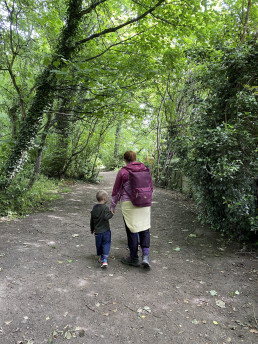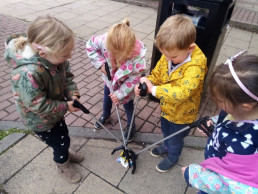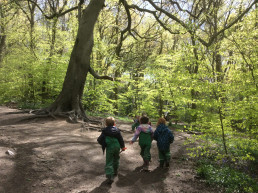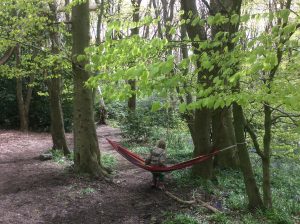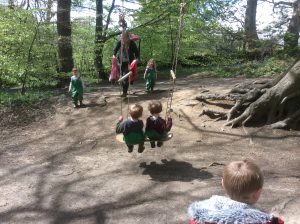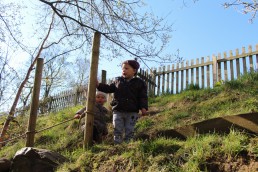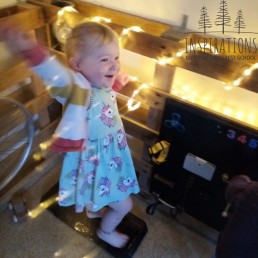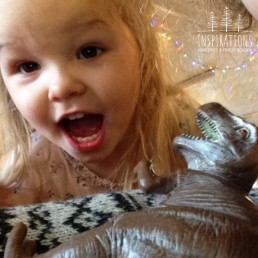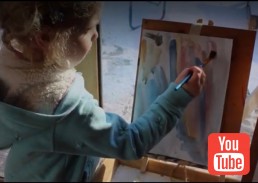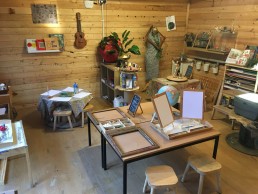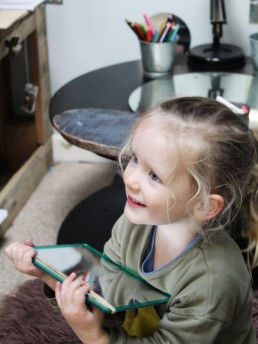Into The Woods- Our Song
The children of Inspirations would like to share with you our very own Inspirations Original song written by Nathalie and the Pre-Schoolers. Every day upon entering the forest we greet 'Mr Owl' of Hunger Hill Woods, so we put this greeting to a tune on the ukulele. Please find the lyrics below if you want to sing along at home, if you woud like the chords just get in touch.
Into The Woods
Into the woods we go
To lose our mind our body and soul
As we leave our world behind
What Might we find?
Mr Owl I see you hurray!
Good afternoon may we enter today?
There's beauty here, we'd love to share
We tread lightly with care
We hear the wind through the trees and it whispers hello
We see the leaves change from brown onto green and yellow
Every's a new day in the forest we know
ooo ooo ooo ooo
Out of the woods we go
To lose our mind our body and soul
As we leave our world behind
What might we find?
Mr Owl I see you hurray!
Good afternoon may we leave today?
There's beauty here, we loved to share
We tread lightly with care
We hear the wind through the trees and it whispers hello
We see the leaves change from brown onto green and yellow
Every's a new day in the forest we know
ooo ooo ooo ooo ooo
Summer Solstice
It was the longest day of the year on Monday, also known as Summer Solstice. A day we weren't going to allow to slip past us without making the very best of it.
Summer Solstice occurs when one of the Earth's Poles has its maximum tilt toward the Sun, and so naturally we spent the whole day outdoors.
Usually for our Pre-Schoolers our Forest School sessions come back to the Yurt for lunch, before taking another group session in the afternoon. But this Wednesday we took lunch with us and spent the whole day in the forest.
It was beautiful.
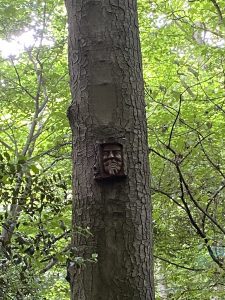
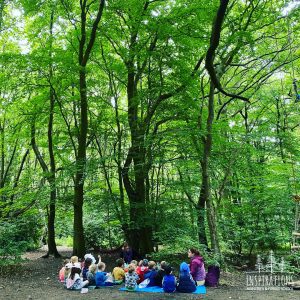
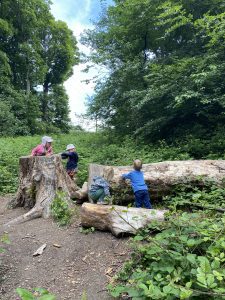
Its amazing to see how the environment shapes behaviour and guides play. Spending the whole day in the woods allowed the children the freedom of both space and time without us having to cut short their explorations.
As we entered the woods a little boy at the front ran ahead, I was just about to call him back when I realised he was running to a particular tree simply to wrap his arms around it.
Nature Appreciation
As he held this embrace it occurred to me that this boy was excited to be reunited with a tree, and how wonderful that is.
How often do we remember to be thankful for plants and trees growing around us? I sure learnt something in that moment.
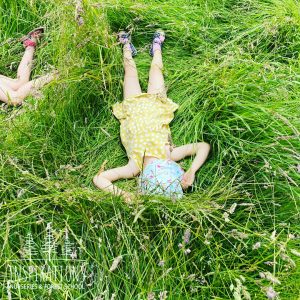
They needed this time.
They had their lunch beneath the trees, played in the hammock and rope swing, collected sticks to create dens, made their own books and explored at their own pace. At the end of the day we played in the long grass, and finished with a Nature Appreciation Story.
Then we headed back to nursery much dirtier, but calmer, wiser and more thankful of the world around us.
'Hello friends, I can see all of the sunshine in you'
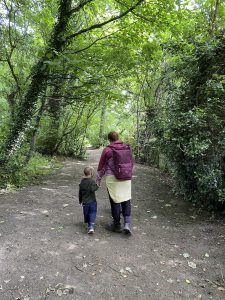
Little Litter Pickers
It was during one of our daily Forest School trips that one of our Pre-School children expressed disappointment at finding litter on the ground. We decided to order some litter pickers and set out on an adventure to clean up Horsforth.
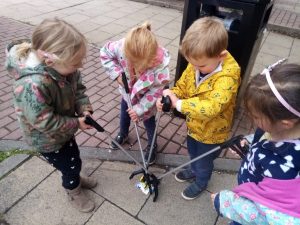
At least once a week now a small group set off around Horsforth with Litter Pickers and a bag, collecting every item of trash they see along the way. So far we have met some wonderful people who stop and thank the children. It's a wonderful way of getting exercise, meeting our locals and helping our community.
Watch the video here-
https://www.youtube.com/watch?v=5N-yULXVwjk
We're proud of our children for noticing the world around them and caring about the place they live. Would you like to help make Horsforth a cleaner place? Check out the Horsforth Litter Pickers group on facebook.
Spring Time in the Forest
A time for adaptation and growth.
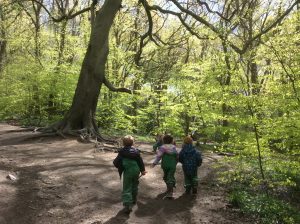
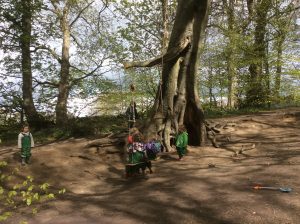
"The stream is following us."
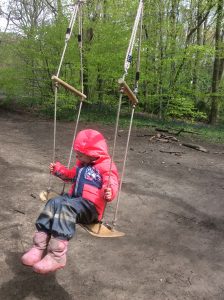 Our adventures into Hunger Hills Woods continue to inspire us all and recently we have discovered a new favourite hide out. In our "fairy tree" a local toy shop has installed a skateboard swing which the children love to play on. The surrounding area is equally awe-inspiring with an existing 'twig-wam', a large fallen Rowan tree and a stunning new growth of Beech trees which, since coming into leaf provide a wash of yellow and green light across the glade.
Our adventures into Hunger Hills Woods continue to inspire us all and recently we have discovered a new favourite hide out. In our "fairy tree" a local toy shop has installed a skateboard swing which the children love to play on. The surrounding area is equally awe-inspiring with an existing 'twig-wam', a large fallen Rowan tree and a stunning new growth of Beech trees which, since coming into leaf provide a wash of yellow and green light across the glade.Toddler's Forest School Garden
Measured Risks and The Great Outdoors
Getting outdoors could not be more important right now, and the health benefits that come with it are not only beneficial but fundamental to our wellbeing. But are the youngest members of our society getting enough outdoor adventurous play? Recent studies suggest not. 85% of parents admit they would like their children to have more adventure, whilst 44% admit they played outside more as a child then their own children do. Indeed this is a sign of the times and sometimes children miss out on these opportunities due to safety worries.

At Inspirations you can rest assured that your children are getting more than their fair share of outdoor play. Our outdoor areas are of equal, if not more importance to our indoor spaces. The 2-3 age group is where our children are first introduced to a designated forest school area in addition to their outdoor area.
Our toddler room garden is an extension of their classroom, filled with repurposed objects and areas that support the many types of schemas as mentioned in the previous blog. There are balancing beams, planks, crates, small world areas to support interests, and many more. It is here we make use of the larger loose parts and ambiguous resources such as milk crates, planks and go kart wheels. We have an open doors policy so in all weathers our toddlers have access to the outdoors.
Raising Confident Learners
Not all children have easy access to nature, so it's important we offer this space from a young age. But why is it important for young children to experience adventurous play?
In 2019 we gained planning permission to extend our toddler room garden and build a Forest School Area. This zone is opened up with increased staffing and introduces the children to more adventurous play, with tracks, steps, netting, hills and trees to explore and climb.
Providing this access opens up valuable experiences they may not get elsewhere. As their brains are forming, growing and changing every minute these measured risks they are exposed to supports healthy boundaries and emotional and physical development. This purpose built area means children are using core muscles, with hills to mount and areas to climb. The uneven ground tests and strengthens their vestibular balance skills and coordination.
Whilst children navigate this recently developed area we encourage them to safely create their own boundaries, trial ways of movement, and learn to just keep trying. Instead of suggesting how to use the area, we as educators will avoid giving direction but instead ask open ended questions. 'I wonder where you'll go next?' or 'wow that looked really hard, and you didn't give up'. By focusing on questions and observations rather than just praise and direction we are building our toddlers inner confidence that sets them up for life.
By creating dens between the trees, growing lavender and scaling balance beams, having this little taste of adventure prepares our toddlers for Forest School when they move to Pre-school ....and beyond.






Being Two- What are Schemas?
Welcome to part two of our focus on Being Two. This week we take a look at schemas, what they are, how our toddler room supports them, and ways to support this at home.
Have you made a cup of tea today, switched a light on, picked a pen off the floor and moved it to a flat surface to avoid it rolling off again? Then you have used schemas today without even realising it.
 A schema, put simply is like a mental model, a set of instructions we act out in our brain based on what has been successful in the the past. Whilst we come across schemas every time we learn something brand new, as you can imagine this happens the most at 2 and 3 years old.
A schema, put simply is like a mental model, a set of instructions we act out in our brain based on what has been successful in the the past. Whilst we come across schemas every time we learn something brand new, as you can imagine this happens the most at 2 and 3 years old.
Our toddler room is a HUB of schemas and is filled with opportunities to create these brain connections.
If I hit this will it break?
Whilst in may appear our little ones are rampaging through rooms causing chaos perhaps it helps to change our perspective and remember they are simply creating cognitive blue prints that set them up for life.
What happens if i drop this? Does this bounce? If I hit this will it break?
The Main Types of Schemas
Below are some examples of Schemas and how they are supported within the provision:
- Transporting – Moving objects or themselves from place to place. Moving things
with their hands. Bags, pots, pans, containers, sad. - Rotation – Turn and rotate objects or themselves. Roll their bodies, playing with toys
that spin, twist, and turn or even ride bikes. They could use Tyres, Wheels, Cable
reels and cars to explore this interest. - Enclosing – Join lines or build structures with objects such as bricks, magnets, or
malleable materials to form enclosures/models. - Connecting – Joining things together, fastening or tying things. Separating or
disconnecting construction etc. - Positioning- Our loose parts ethos lends its self well to this schema, lining things up, ordering different sized objects.
- Enclosing or enveloping- There is always a large cardboard box on the go in our toddler room setting for the children to climb into. But this can also be seen with sand or soil or fabric.
- Transforming- Messy play- gloop, water trays, mark making



I have attached a link that details further Schemas and how you at home can support these at home.
http://www.flyingstart.uk.com/wp-content/uploads/2014/08/Schema.pdf

Being Two
This Month we are focusing on our middle room at nursery, the toddler room, also known as our Honeybees room. Being two is more commonly referred to as the ‘Dreaded Twos’ or ‘Terrible Twos’; a term we find very unjust and instead celebrate this age with the phrase ‘Terrific Twos'.
Terrific Twos
It is very easy to conclude that your Toddler is in the midst of the ‘Terrible two’s’ when they act up and try push your buttons, especially when you are faced with patience testing tantrums.
It is important to remember that they are experiencing so many emotions and ultimately navigating their way into becoming tiny humans. They do not mean to drive you to the bottle of wine sat in your fridge, they are just growing and learning whilst showing you who they are and that being two really is terrific.
Adventure and Independence
In our eyes being a two year-old is about adventure and independence, traits we
feel are continuing to shape them after the transition from Baby to Toddler.

The Toddler room, or the Honeybee’s room as we refer to it is set up to allow the above,
and is a large area both indoors and out to move around freely, with many areas of
provision to explore and investigate. Whilst these areas are being slowly destroyed by tiny
hands and feet, friendships are being formed, and language is continuing to develop by
using simple sentences to share feelings, experiences and thoughts. They become more
aware of others feelings, and they are starting to understand boundaries and routines, as
well as listening with interest and understanding simple questions.
Milestones - Potty Training
Being Two also comes with it's challenges and a certain milestone is often met during this
period of their lives… Potty Training! Early signs that they may be transitioning
to this stage include awareness and communication. From telling you that they have done
something in their nappy to expressing the urge to go, these are all clear indictors that the
time is right and you should go with it and know that we are always their to support you. Remember that children develop at their own pace and they may not be ready to be potty trained until later.

Here are some links to books and tips for support-
https://www.amazon.co.uk/s?k=potty+training+books+for+toddlers&crid=BLJ3UFJL3K9O&sprefix=potty+training+%2Caps%2C192&ref=nb_sb_ss_ts-doa-p_3_15


Children are not things to be moulded, but people to be unfolded- Jess Lair
Next week we will focus on the importance of schemas, with some tips to supporting young children's language development. In the meantime if you've had a tough day, you've passed bath time and skipped straight to bedtime, you're still doing a great job. Remember it is this age that children are making new connections in their brain, pushing boundaries and learning vocabulary at rapid speed. We have to give credit to them for all this multitasking, whilst keeping our silliness alive, reigniting our imagination, and providing daily entertainment.
Although there can be some hard times amongst the great times if we start to see the world through their perspective we might all agree that life as a toddler can be challenging but also very fun.
-Ashleigh
Seekers of Meaning
New Video
Over the last few weeks I have been filming the children as they explore the Art Studio. To read more about our Art studio you can go back to last weeks blog.
The children's current shared interest is construction and building houses from clay, bricks, sticks and blocks. Some of that is captured in our brand new video that you can watch here-
https://www.yout ube.com/watch?v=4-59qb9GgdQ
ube.com/watch?v=4-59qb9GgdQ
The Art Studio
Every morning and afternoon our Pre-Schoolers choose where they want to spend their time, between the Yurt/Outdoor Classroom, Forest School or the Art Studio. There is a quaint pebbled path that leads us behind the Yurt, past the new pond and up to this purpose built creative space, but this isn't just any art classroom, we do things a little differently here. http://simonr30.sg-host.com/the-art-room/
Why do we have an Art Studio?
Of course creativity is woven throughout every aspect of our learning at Inspirations, there are mark making tools, paints and clay accessible in all areas, so why do we need an additional separate creative space? The Art Studio, (referred to as an Atelier in the Reggio culture) is so much more than just an Art Room. It is its own separate space for the children to own, re-purpose and re-visit week after week, and is set out to foster self discovery.
100 Languages of Learning
It is a space for smaller groups of children to branch off, be heard, share ideas, and develop the confidence to be leaders of their own research and learning. It is an environment that plays host to books, materials and tools that support the 100 ways of learning with the support of myself as the Atelierista. It is a space where children proceed through their inquiry to reach their hypothesis though guided experiments, mixed media, play, music, light and shadow, sculpture and dramatic play. A space for them to give meaning to, give identity to, and in turn put them selves and their ideas into context within the world they live in.








The walls of the Art Studio are a canvas, a projector screen, an art exhibition and a metaphorical mirror reflecting the evolving learning journey of our children. Through photos and quotes of the children's voice on the wall the children can see where their ideas started, where they are now, and by reading back the children's own words they see that their inputs are recorded, valued and remembered.
It's also important to note that the Atelierista is not an art teacher, rather, an Artist who knows the potential of art materials and children, and the limitless possibilities when these are combined.




Beautiful Mistakes
In the Art Studio the children are not afraid to try new things, because fear of failure doesn't exist. How can it exist in a place where mistakes are simply learning opportunities. A fallen glue pot can become an art project in its self, and a drawing gone wrong can inspire new ideas. One project that stands out began when a child wiped up spilt watercolour paint from the floor with a baby wipe and watched as the colours soaked through the wipe. He then decided to add baby wipes to a canvas, the 'dirty' baby wipes themselves then becoming the art.
Seekers of Meaning
As constant seekers of meaning, our children are making sense of the world around them with everything they do, and our Art studio is one section of our pre-school that fosters this.
This week we will be filming inside the Art Studio to see their explorations brought to life, this short film will be shared on You Tube next week.
- Nathalie
Pre-School at Adel
Are you longing to peer into the future, catch a glimpse of normality resuming once again? I think we can agree this is going on longer than we initially imagined, but here we are. We are still in this together, and we hope during these times of increased social distancing you can still maintain social connections online, just like those in this news story that brought a smile to our faces. https://www.bbc.co.uk/news/av/uk-55732174
So we start this blog by asking, how are you, and what are you grateful for? We are grateful to have our Inspirations Nurseries families that continue to bring a sense of community.
Last week our blog focused on our Horsforth Pre-School, so this week we hand over to Deborah our manager at Adel to talk about our other Inspirations Nursery only 10 minutes away.
Welcome to Adel
At Adel we take children from the age of three, to starting school. Like Horsforth, we follow the Reggio Emilia Approach, which comprises of loose parts, mirrors and reflection, natural resources and investigation of up-cycled and recycled trinkets and materials.



Our setting is within the grounds of Adel St John the Baptist Primary School which is surrounded by beautiful woods and trees. There’s a well-equipped natural garden with a climbing wall, workbench, piano, mud kitchen and bikes. We have the use of the super large playing field and the conservation area which we use twice weekly for Forest School.
Our planning involves the outdoors as much as indoors and the children can choose where they would like to play.
Inside we have a very spacious room with areas to promote learning wherever the children choose to be.
Set Out to Inspire
The aim of our pre-school environments is to inspire the children to want to explore and learn. We have a maths, literacy, construction, small world, home and creative area of which all have natural resources for the children to explore and a wide range of loose parts to promote maths, communication, imagination and problem solving.



After observing the children’s common interests, we plan as a team to add resources and challenges to the areas and talk to the children about what they know and what they want to know, and how they would like to learn.
The children’s key worker also plans for their key children’s individual interests to support and provide opportunities to progress in all areas of development. As we are a pre-school we encourage independence and all skills necessary for school readiness, such as being able to express their own needs, listen to others and stories, separate from their carer, independent self-care, and understanding of British Values which encourages respect for ourselves and others.
Phonic, Spanish and Creativity
We teach phonics which is differentiated to meet and challenge each child’s individual ability. At Adel we also introduce Spanish to the children; an introduction to languages through songs, games and activities promoting enthusiasm with learning languages later in school. We also have our own Atelierista who comes in 3 times a week to deepen creative projects in smaller groups.

Throughout both our Pre-School settings we support your children in becoming strong independent learners, enabling them to think critically and outside the box. Their use of imagination and their understanding of the world, alongside their ability to problem solve, will stand them out from the crowd and give them a head start in life.
If you love our nursery as much as we do, have any questions or are interested in joining us check out more on the website here-http://simonr30.sg-host.com/our-settings/adel/ or contact- deborah@inspirationsnurseries.co.uk

